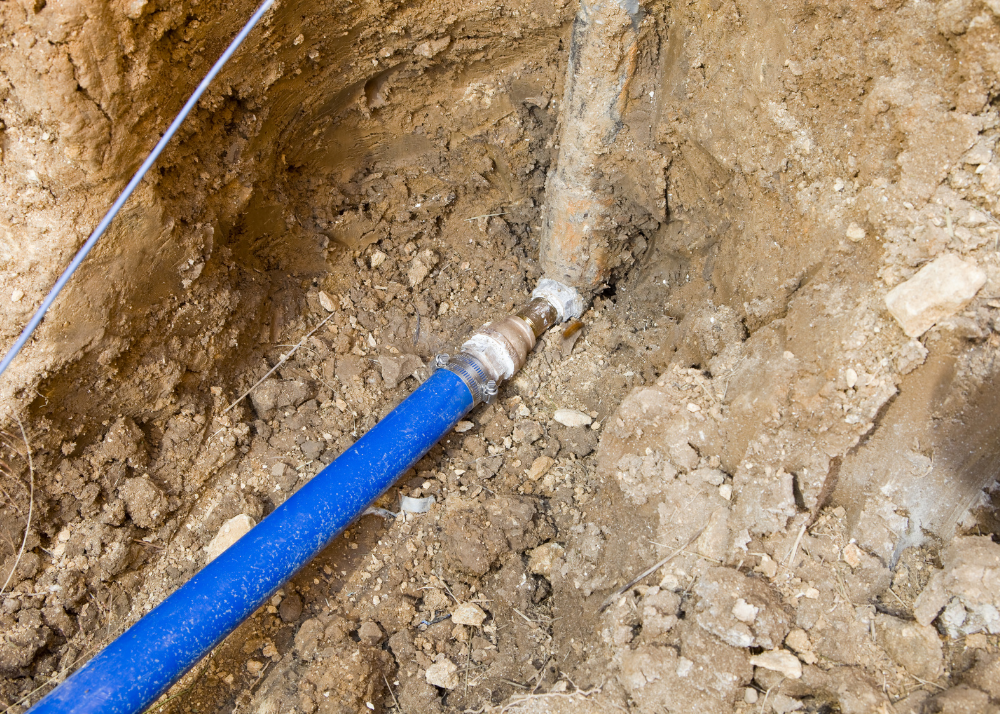Residential main water lines are often neglected, but crucial components of your home’s plumbing system. The main water line undergoes constant use as the pipe that carries water into the home—and if any problems develop in the line, service could be disrupted, property damage could result, and in some cases there could even be serious health risks.
The main water line is typically buried, so it’s difficult to assess the pipe’s condition on a regular basis. Generally speaking, you don’t need to think too much about your water line—depending on what the pipe is made of, main water lines will typically last anywhere between 20-100 years. Often a family can live in the same house for decades without having to spend any of that time thinking about their main water line!


Signs you have a main water line break
When there are issues with your main water line, the upside is that those issues are difficult not to notice. Here are just a few indicators that your water line needs to be looked at:
- Drop in water pressure—if there is an overall loss of water pressure throughout your home, there is most likely a problem with your main water line. If the drop in water pressure is limited to one shower or faucet, there’s likely just an issue with one of the lines inside your home.
- Increased water bill—a minor leak may not impact your water pressure, but it will most likely impact your water bill. We’ve talked in previous blogs about the cost of a single dripping faucet—now imagine your main water line is affected by a constant leak. If your water bill becomes consistently higher than normal and you’ve eliminated the usual suspects (leaky faucets, for example), it’s time to think about an inspection of your main water line.
- Pools of water in your yard—this is the most obvious and serious indication of a water line break (or if there’s a notable stench, a sewer line break). Signs of these pools could range from abnormally vibrant patches of grass to muddy fountains burbling from the ground. If you notice this, it needs to be addressed ASAP—even if your water pressure hasn’t yet been affected. This issue can loosen the soil around the pipe, which will result in a gross lawn, a breeding ground for insects, and potentially serious problems with your home’s water supply.
- Contaminants in your water—if you notice the water from your faucets is cloudy, smelly, or grainy, it’s time to have your water line inspected.
What to do if your water line is broken
If your water line is broken, it’s time to figure out whether the line needs to be repaired, or replaced. Usually repair is not an option, particularly in older homes. If the pipe has undergone previous repairs, additional repairs might be a good short term fix, but this will also mean it’s more likely that the water line will fail again in the near future. In our experience, the cost of frequent plumbing repairs will quickly exceed the cost of a one-time line replacement (which, as we mentioned, will last between 20-100 years!).
Talk to your plumber to figure out the best option for your home; they should go over options as well as the associated costs for those options when providing you with their recommendation on how to proceed. Whether you’re considering repairs to your water line or opting for a complete replacement, you’ll want to reach out to an experienced, trusted plumber in Winnipeg to make sure you fully understand your options. You can reach out to the We Love Plumbing Team to get started!
